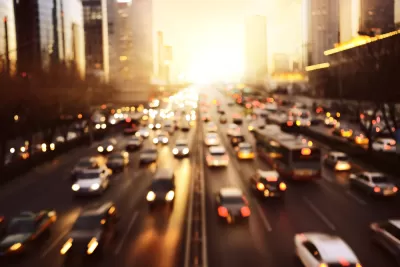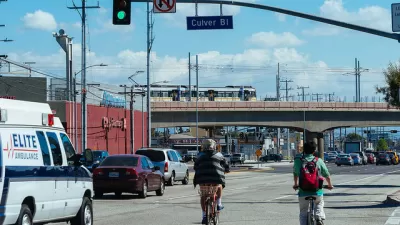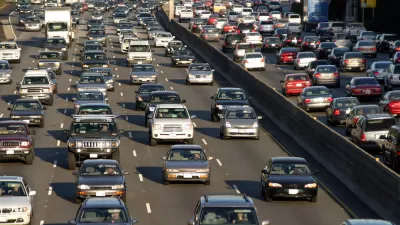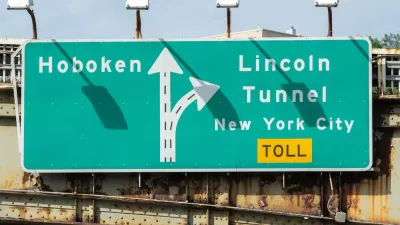Amanda Eaken offers up a defense of "Go Zones," otherwise known as congestion pricing. In Los Angeles and elsewhere, she argues, they could thin out traffic.

This Friday, we took a look at the Southern California Association of Governments' 100 Hours campaign, including its controversial congestion pricing proposal for Los Angeles. Here, the NRDC's Amanda Eaken argues that the plan makes a lot of sense, and that people might warm up to it once they see it in action.
Eaken writes, "Driving on most roads is 'free,' so we prioritize driving in the belief that we're spending zero dollars to get somewhere." But traffic entails high costs, to the driver as well as the city being driven in.
With congestion pricing, "drivers pay an automated fee to enter highly congested streets at peak hours; in return, they get the promise of smooth-flowing traffic and reliable travel times. Prices are set at the lowest possible level to free up just enough road space to eliminate bottlenecks."
Eaken cites Stockholm's congestion pricing program as an example of how drivers can warm up to an initially off-putting idea. "[M]ost drivers were confident they had favored congestion pricing all along, though a study before pricing was introduced showed 70 percent of the population was opposed."
FULL STORY: We CAN Solve America’s Traffic Nightmare

Planetizen Federal Action Tracker
A weekly monitor of how Trump’s orders and actions are impacting planners and planning in America.

Congressman Proposes Bill to Rename DC Metro “Trump Train”
The Make Autorail Great Again Act would withhold federal funding to the system until the Washington Metropolitan Area Transit Authority (WMATA), rebrands as the Washington Metropolitan Authority for Greater Access (WMAGA).

DARTSpace Platform Streamlines Dallas TOD Application Process
The Dallas transit agency hopes a shorter permitting timeline will boost transit-oriented development around rail stations.

Renters Now Outnumber Homeowners in Over 200 US Suburbs
High housing costs in city centers and the new-found flexibility offered by remote work are pushing more renters to suburban areas.

The Tiny, Adorable $7,000 Car Turning Japan Onto EVs
The single seat Mibot charges from a regular plug as quickly as an iPad, and is about half the price of an average EV.

Supreme Court Ruling in Pipeline Case Guts Federal Environmental Law
The decision limits the scope of a federal law that mandates extensive environmental impact reviews of energy, infrastructure, and transportation projects.
Urban Design for Planners 1: Software Tools
This six-course series explores essential urban design concepts using open source software and equips planners with the tools they need to participate fully in the urban design process.
Planning for Universal Design
Learn the tools for implementing Universal Design in planning regulations.
Municipality of Princeton
Roanoke Valley-Alleghany Regional Commission
City of Mt Shasta
City of Camden Redevelopment Agency
City of Astoria
Transportation Research & Education Center (TREC) at Portland State University
US High Speed Rail Association
City of Camden Redevelopment Agency
Municipality of Princeton (NJ)





























